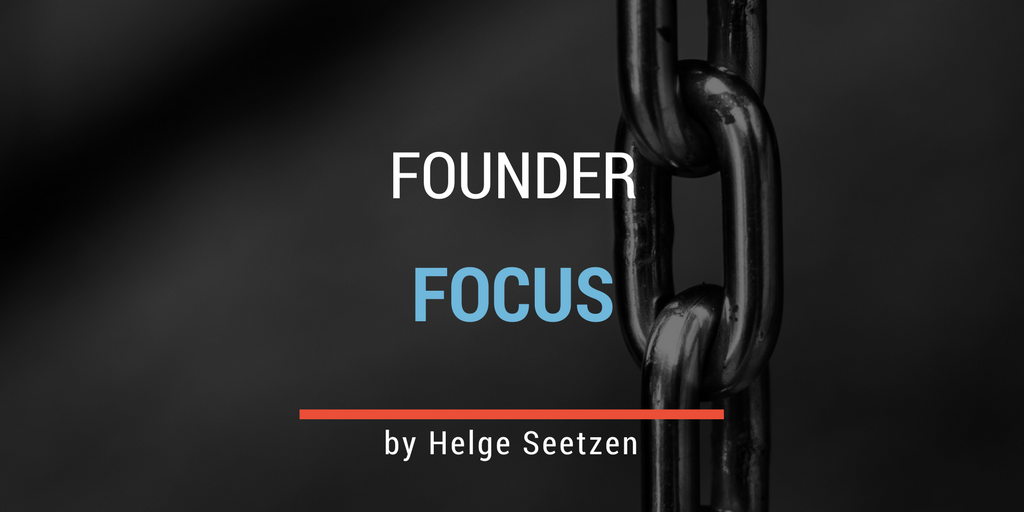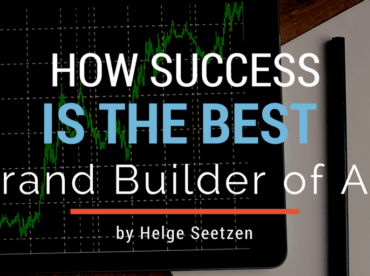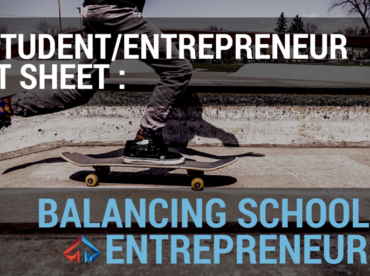At a recent talk on student entrepreneurship at McGill I received an audience question about the limited alignment between academic and entrepreneurial focus. This hit the nail on the head.
Focus makes ventures succeed. Paul Graham goes as far as predicting instant death for companies funded by active graduate students. That’s scary stuff to hear when you consider that the vast majority of university spin-offs have graduate student founders (and have practically no other choice since the professors usually don’t leave their position to run the business).
The first thing to keep in mind is difference between probabilities and dogma. As much as some web followers would like to turn Paul’s excellent observations into ironclad “rules”, I don’t think that’s his intention. Paul and other advocates of single-minded focus are basing their advice on probabilistic observations from their own experience base. And in that context they are definitely right. Focus and passion allow you to apply the necessary energy to a new project.
It’s definitely possible to overcome those hurdles without giving up your degree though. I was a founder/executive and full time student during Sunnybrook Technologies and BrightSide Technologies. We did just fine economically. The key is to change your context to the world of university entrepreneurship, embrace the limitations and then find ways adjust for the focus limits without killing your business.
The Problem
The two most likely university spin-off founders are professors and students. In fact those are pretty much the only types of founders you will find in spin-offs early on. Professors have an actual day job and are extremely unlikely to leave it. Students are usually at university to get a degree (or enjoy the parties). You can cut back on the parties but full time and attention is out of the question.
Worse than the impact on available time are the inherent conflicts of interest. Professors and graduate students have a mandate to publish novel work. This causes a problem for spin-offs trying to operate under the radar but that’s actually the least of your problems. Publicity is usually needed to raise money anyhow. A much larger problem is the novelty requirement for academic work. Striving for novelty is of course the mentality that made your spin-off technology valuable in the first place but it can become a major burden after you launch.
Technology spin-offs are 10% invention and 90% product development. Of course you shouldn’t stop innovating but a lot of value at the post-launch stage comes from condensing your idea into a product. Build something, put it in front of customers and iterate. Most of the challenges of building that product have very little to do with your initial invention and all to do with general product engineering problems. And in that world “Novel” is the twin brother of “Perfect” when it comes to their competition with “Good Enough”.
Our main concept at BrightSide Technologies was to place controlled LEDs behind an LCD to achieve higher dynamic range (contrast & brightness). That concept came out a classic university environment with the professor who invented it addressing a major problem in the world. We left university with a very basic prototype of this approach and spent the following years doing practically nothing but product development. And our technical challenges had little to do with the invention as such.
Our first series of prototypes were built because the university box wasn’t stable enough to take it on financing roadshows (both physically stable and in the sense of requiring me to be attached to it as human repair system). Our first few engineering hires were experienced mechanical and electrical guys to solve what were essentially packaging issues. The investors loved the new demo but thought that it really needed to be bigger to impress customers. So our next series of prototypes grew from 18” to 37” diagonal in size (at the time the largest LCD size on the market). Suddenly we were dealing with weight and transportation issues – to the point of having in-house staff designing custom shipping crates. The big boxes also had cooling problems and investors & customers wanted them thin. So we became experts in liquid and later air cooling systems. Finally, we had to add experienced FPGA engineers to the team to cope with customer demands to “prove” that our algorithms could run inside the display (we used an external PC GPU until then).
The bottom line is that we had some 30 very talented engineers working on all kind of issues that were absolutely essential to the success of the company but offered zero opportunity for academic publication. We learned a lot along the way, including much that made us valuable to our ultimate acquirer, but from an academic perspective we were in a dead zone. And this can be a real problem. I have seen plenty of university spin-offs where either the professor or graduate student founder has (often subconsciously) pulled the company into a direction that is compatible with the rest of their lives but ultimate causes the business to fail.
The Solution
There are several strategies to make this work and prevent catastrophic failure of the business. For professors, it is probably the easiest because they are rarely leaving university to become founding executives of the company. More often they assume advisory roles in which they can be of excellent value. Resist the temptation to place the innovative professor onto your board of directors. The board is a governance and business strategy body, not a place to set technical roadmaps or invent stuff. The exceptions are those rare professors with venture experience but most profs belong onto technical advisory boards.
The easiest way to solve the conflict of interest problem as a student is to be an undergraduate when you spin out your venture. That might sound crazy but undergraduates don’t have the need to publish and that’s a big plus. You take your classes, get good grades and that’s pretty much it. The bad news is of course that those classes are a lot less flexible than graduate research both in terms of time and topic. So you avoid alignment problems by simply working a lot more hours. I was a full time Honours Physics undergrad in parallel to co-founder and executive at Sunnybrook Technologies. You don’t get a lot of sleep but at least you don’t have to worry that your decision making process is sub-consciously biased in a way that could hurt your company.
The options for graduate students are a bit more limited. You still have to work very hard to do things in parallel but you also need to address the alignment problem. The first step is to make absolutely sure that your supervisor is on board with your spin-off activity (that’s easy, especially if they are a co-founder) and that the supervisor fully understands the implications (that’s a lot harder absent previous venture experience). Aside from reducing your available time, the spin-off will have a strong impact on the direction of your academic work. Or rather, you are setting yourself up for failure if you don’t create that alignment.
Just being in the same technical field isn’t enough. I have seen plenty of graduate students involved in spin-offs who, understandably, think that overlap between their field of study and the product of the company is enough to create alignment. After all, if the spin-off commercialised your own invention, how can there possible be a problem? Well, there is. You don’t just need to align the technology but also your role.
As a regular developer you have a fairly decent chance to run your academic work in parallel and not suffer to badly. Probably the biggest thing to watch out for is your choice/assignment of project. Don’t go for the big and interesting stuff. Resign yourself to the fact that those areas aren’t for you as long as you are primarily a student. The big stuff will be directly tied to the business success of the company. It will come with timelines, pressures and resource assignments that will very quickly make it untenable for a graduate project. Holding onto it (if you have the power) will damage the company. Giving it up (or sharing it with professional staff) often means that you wasted a big chunk of time on a project that won’t be viable for your degree anymore. Focus on the tangential stuff instead. Find the problem that could have a nice benefit for the company but isn’t critical for their business. You will be helping the company advance but be generally save from business dynamics.
For graduate students in founder or leadership roles this is a lot more difficult. A CTO or VP Engineering working on a tangential concept is a death sentence for most spin-offs. Instead, you need to structure your role around academy-friendly activities and recognise that you will need others to fill in your gaps. There are only so many hours during the day and the company will suffer badly if you kid yourself about the things that you can achieve.
In my case I was a full time Masters/PhD student while co-founder and CTO at BrightSide Technologies. I did plenty of general corporate, fund raising and customer facing work (that’s where working many hours comes in since none of this was one bit aligned with my degree). But a big part of my role revolved around technology strategy, patent strategy and collaboration with a wide academic network to grow our portfolio from just displays to include the entire imaging eco-system (camera, video encoding, transmission & processing, display & projection). Especially the last item allowed me to work on a broad range of “innovation-friendly” concept while creating real value for the company: Dolby Labs, BrightSide’s acquirer, doesn’t make displays but is a world class eco-system licensing company.
Maybe even more importantly, we brought on a CEO and VP Engineering to take on exactly the roles that were not compatible enough with my academic interests: primarily fund raising and product development respectively. Not only did these people bring strong talent to the company, they effectively allowed me to maintain my academic timeline. Part of this is of course also a matter of skill set but I am writing this as a start-up CEO today and was previously directly responsible for product development of Dolby’s first two video offerings. Regardless of what I could have done (or could have learned to do), there is no doubt in my mind that taking on such roles at the time would have causes significant damage to my studies, company or (most likely) both.
Bring the right kind of help in board can allow you to fill the holes that your academic interests create. Of course this has a substantial budget impact (these weren’t Ramen-eating student co-founder but industry professionals – precisely because that’s what we needed). It was beyond any doubt the right thing to do though. Nothing is sadder than a great technology that turns into a languishing dead end business because the inventor is too busy at school to do the things that are necessary to achieve success.



